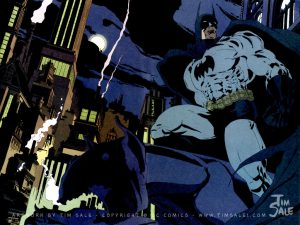Category: Uncategorized (Page 2 of 3)
Hi Class,
The sublime is a very useful concept for understanding what makes something gothic. And it can be usefully compared to the uncanny.
The first century Greek writer Longinus defined the sublime as language that “transports” the reader, that “shatters the reader’s composure,” that dominates him or her. The source of the sublime can loftiness of thought and strong and inspired passion.
Edmund Burke wrote Philosophical Enquiry into the Origin of Our Ideas of the Sublime and Beautiful (1757) in which he stated that the sublime consists of those things that are “terrible” and that “excite the ideas of pain, and danger” provided that the reader is safe from danger and can thus experience the painful terror as a “delightful horror.” Burke thought certain features such as obscurity, immense power, and vastness of space could provoke this feeling.
Immanuel Kant thought the sublime could be divided into two categories in his Critique of Judgement (1790). The mathematical sublime encompasses the sublime of magnitude—of vastness in size or limitlessness or infinitude in number. The dynamic sublime encompasses the objects conducive to terror at our seeming helplessness before the overwhelming power of nature, provided that the terror is rendered pleasurable by the safety of observer.
(from A Glossary of Literary Terms, 10th ed.)
Hi Class,
Today was not easy, but I think it is helpful to wrestle with these difficult terms as we move into the next areas.
Homework for spring break:
1. Print and read the Johns Hopkins guide to Queer Theory and gender (8 pages on OpenLab).
2. Print and read the Christina Rossetti poem “Goblin Market” (OpenLab)
3. Write a 300 word journal in which you identify sexual imagery, instances of unequal power, and instances of exclusion.
Best,
Prof. Scanlan
Hi class,
These terms are not simple, and a lot of work has been done on them. Don’t think that my summaries are all there is to know…seek out more information on your own.
Discourse (as conceived by Michel Foucault (1926-1984)): is written and spoken communication. Often this term is used to specify a particular language type or field of knowledge, such as the discourse of science or legal discourse. More specifically, discourse is the sequence of signs that make up a language, the context of the conversations about the language, the conversations that take place within the language, the conversations about how the language works, and the external conversations that touch on the boundaries of a specific language. It is helpful to note that discourse alters a person’s perceptions and it is tied to power and exclusion. For example, in psychology, the definitions of sanity, normality, and mental health become the sources for how people perceive human behavior, even if these definitions change over time or vary across national borders. If a person seems to fit a definition of insanity, that person can be excluded from society and stigmatized. In this way, discourse can be seen as helping to define a person’s perception of reality.
Repression: First it is important to note that current theories of psychology place doubt on the existence of repression. Second, this term was made famous by Sigmund Freud (1856-1939), who thought this concept was the cornerstone of psychoanalysis. To Freud, repression was the mechanism that directed one’s desires for pleasure into hiding by subduing them in the unconscious. Freud wanted his patients to work to remember the repressed memories and move past this defense mechanism.
Hi all,
Here are two animated interpretations of “The Yellow Wallpaper.”
American Horror Story
A horror/thriller anthology TV series, each season has its own storyline, characters and settings.
Seasons (chronological order):
Murder House, Asylum, Coven, Freakshow, Hotel, Roanoke.
Hi Class,
Hope you enjoyed reading Irving and Hawthorne. We will need to address the context of the Revolutionary War and Puritanism (and the Salem Witch Trials).
Sorry to post this so late. Essay 1 details are in the “Assignments” menu tab.
Best,
Prof. Scanlan










